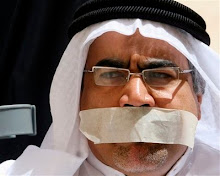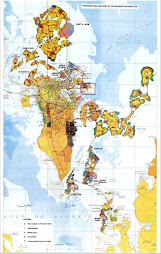 http://www.washingtonpost.com/wp-dyn/content/article/2009/03/13/AR2009031303038_pf.html
http://www.washingtonpost.com/wp-dyn/content/article/2009/03/13/AR2009031303038_pf.htmlDemocracy's Appeal
Will President Obama listen to liberal activists in the Muslim world?
Saturday, March 14, 2009; A14
IT IS SOMETIMES supposed that the Bush administration's push for democracy in the Middle East was invented in Washington and imposed, sometimes with force, on a resistant or indifferent region. In fact, the groundswell for democratic change in Arab states and the broader Islamic world began before the turn of the century and continued growing even after President George W. Bush's second-term State Department mostly abandoned the cause. That's been demonstrated recently in a couple of extraordinary appeals to the Obama administration.
One occurred two weeks ago, when senior Afghan officials were invited to Washington to participate in a strategy review. The government of Hamid Karzai is well aware of suggestions by senior administration officials and Democrats in Congress that the United States should set aside the goal of democracy in Afghanistan. So when Foreign Minister Rangin Dadfar Spanta met Secretary of State Hillary Clinton, he delivered what one official told us was an impassioned appeal for continued U.S. support for an elected government. Outside the State Department, Mr. Spanta publicly told Ms. Clinton that "Afghanistan is committed . . . to work together closely on democratization of Afghanistan and its stability." Ms. Clinton didn't publicly respond, but we're told she reacted positively to the minister's plea. We hope that's reflected in the strategy for Afghanistan when it is unveiled in the coming weeks.
Another remarkable appeal was issued this week by a group of more than 140 politicians, scholars and democracy activists from the United States and the Muslim world, who told President Obama: "In order to rebuild relations of mutual respect, it is critical that the United States be on the right side of history regarding the human, civil and political rights of the peoples of the Middle East." The group reiterated a point that the new administration, with its focus on "direct diplomacy" with state leaders, has appeared slow to grasp: "U.S. support for Arab autocrats was supposed to serve U.S. national interests and regional stability. In reality, it produced a region increasingly tormented by rampant corruption, extremism and instability."
What democracy movements need from the United States, the letter said, "is a commitment to encourage political reform . . . through peaceful policies that reward governments that take active and measurable steps towards genuine democratic reforms. Moreover, the [United States] should not hesitate to speak out in condemnation when opposition activists are unjustly imprisoned in Egypt, Jordan, Saudi Arabia, Tunisia, or elsewhere." The list of signatories includes activists not only from those countries, but also from Lebanon, Syria, Libya, Morocco, Iraq, Iran, the United Arab Emirates, Kuwait, Bahrain, Malaysia, the Philippines, Turkey, Nigeria, Somalia and the Palestinian Authority. Its depth and breadth vividly shows that the Obama administration could find many allies for progressive change in the Middle East -- if only it looks beyond the rulers' palaces.







